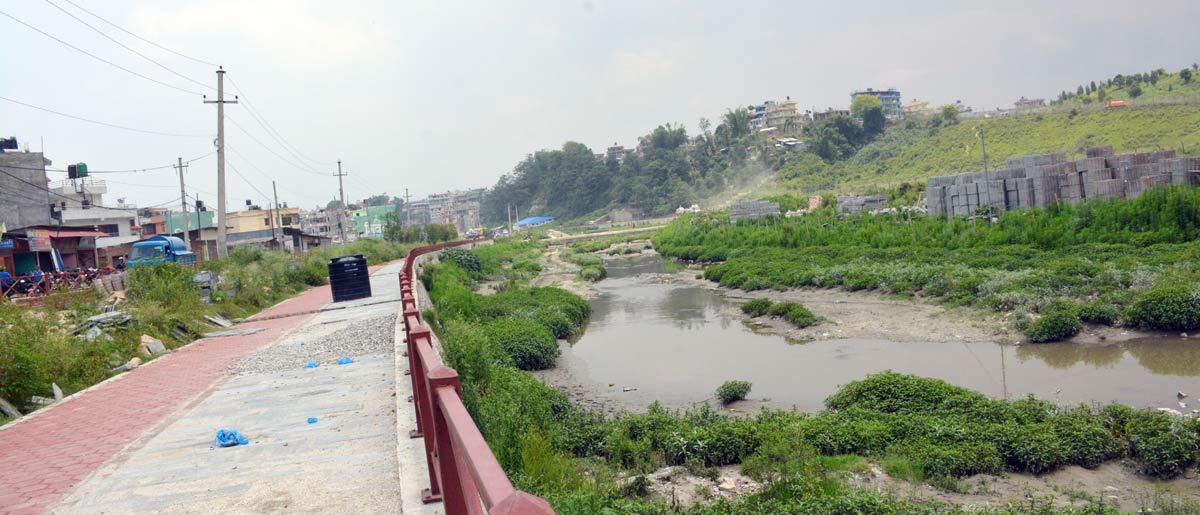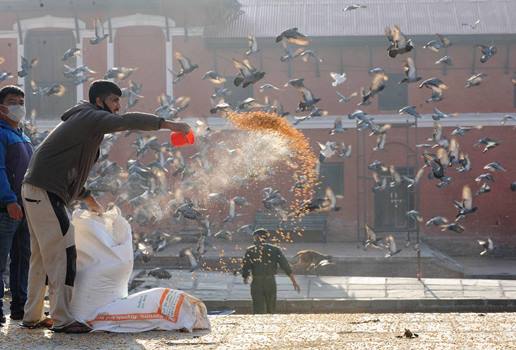Kitchen garden, terrace farming can meet two-thirds of vegetable needs

By Binu Shrestha
Kathmandu, May 17: A number of Kathmandu dwellers have switched to urban farming and helped reduce people’s reliance on pesticide-laced vegetables.
Using no pesticide, people are growing healthy and organic vegetables in their kitchen garden and those who have no land are converting their terrace into organic farming.
Rooftop organic farming has turned out a boon for many people in the valley.
Because they are growing their own vegetables, they are the luckiest ones to consume pesticide-free vegetables, saving their money and helping maintain greenery in the city.
But the number of people opting for urban farming is very low. Majority of the city dwellers are still unknown about the significance of urban farming.
The country imports vegetables worth billions of rupees every year from India and 65 per cent of the imported vegetables are consumed by Kathmandu valley denizens.
Experts have been claiming that if the city dwellers start doing urban farming (rooftop), then it could cater to 75 per cent of household demand of vegetables.
Furthermore, the urban farming can also help manage kitchen waste, they said.
With an aim of promoting urban farming and managing waste within the household, Guthi, a non-government organization, recently conducted online training to prepare compost from waste generated from the kitchen.
Garbage management of the Kathmandu Valley has always been a headache for the authorities.
Furthermore, due to the COVID-19 crisis, the local authority has been facing a hard time to run the garbage collection work smoothly.
Considering the fact, the Guthi conducted online training to manage the kitchen wastes.
Sanu Maiya Maharjan, trainer and officer of Department of Environment of Kathmandu Metropolitan City (KMC), said since many years she had been making compost from the waste generated from her kitchen and vegetable market.
According to Maharjan, yearly she has been producing 10 tonnes of organic fertiliser and selling it in the market.
She has been using 60 square feet of land of her compound to prepare the fertiliser.
She said, “A small effort and work is sufficient to prepare compost from the waste generated from the kitchen.”
She has been earning Rs 17,000 to 35,000 in a month and said that anyone could do this if they worked with full dedication.
Speaking at the training programme, Renu Shahi, ward chair of Kathmandu Metropolitan City-19, said such training in the time of lockdown was found to be very effective.
People could utilise their free time in terrace farming so that their family could eat organic vegetables.
She said, “Normally, when we conduct the training, we can only enroll 50 trainees and most of them forget many things they learned at the training.”
But there is no limit of trainees in the online training. Any interested person can revisit the site and watch the video, whenever they like and wherever they get confused about anything, said Shahi.
Sharing the garbage management experience of her ward, Shahi said “Majority of the people throw away their household wastes, without knowing that they can make money out of it.”
If people learned to manage their household waste, then it would help the city authority to keep the city clean and beautiful, she added.
Similarly, experts of urban farming Shesh Naryan Maharjan, Rekha Maharjan, and Nagendra Man Dangol also facilitated the training which was attended by more than 8,000 people.
Recent News

Do not make expressions casting dout on election: EC
14 Apr, 2022
CM Bhatta says may New Year 2079 BS inspire positive thinking
14 Apr, 2022
Three new cases, 44 recoveries in 24 hours
14 Apr, 2022
689 climbers of 84 teams so far acquire permits for climbing various peaks this spring season
14 Apr, 2022
How the rising cost of living crisis is impacting Nepal
14 Apr, 2022
US military confirms an interstellar meteor collided with Earth
14 Apr, 2022
Valneva Covid vaccine approved for use in UK
14 Apr, 2022
Chair Prachanda highlights need of unity among Maoist, Communist forces
14 Apr, 2022
Ranbir Kapoor and Alia Bhatt: Bollywood toasts star couple on wedding
14 Apr, 2022
President Bhandari confers decorations (Photo Feature)
14 Apr, 2022









